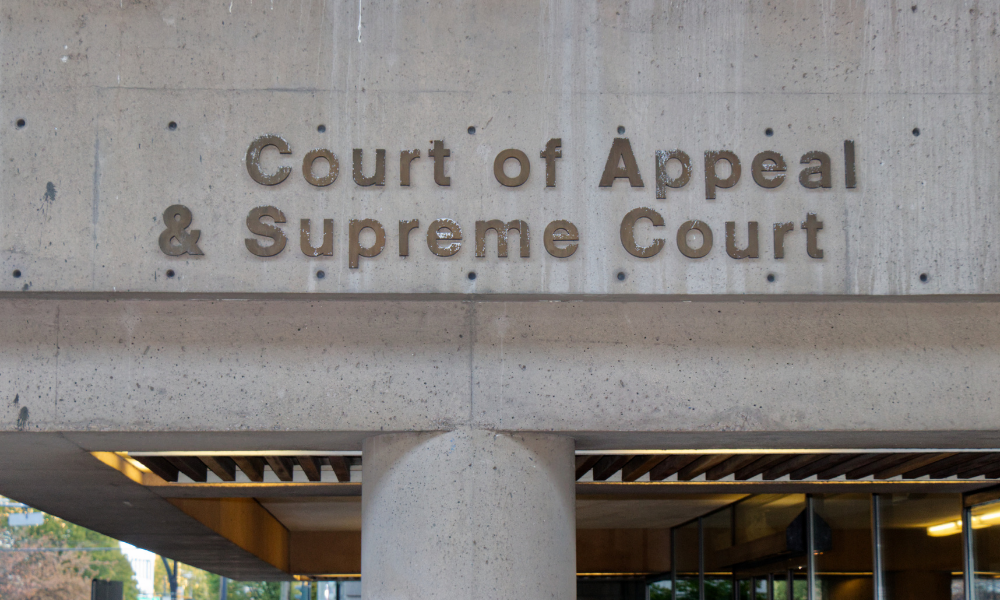
A recent case highlights the tendency of courts to favour arbitral awards

The B.C Court of Appeal underlined the stringent test to apply in granting leave to appeal an arbitral award where a mixed question of fact and law is involved.
In Escape 101 Ventures Inc. v. March of Dimes Canada, the court had an opportunity to rule on an arbitrator’s interpretation of contractual provisions. This case demonstrates the limited grounds for an appeal of an arbitral award and serves as a warning for parties to carefully review the wordings of contracts with arbitral clauses, according to an article by Andrew West at McCarthy Tétrault LLP
The appellant, Escape 101 Ventures , sold its business to the respondent, March of Dimes Canada, under an asset purchase agreement. The dispute arose from the earnout payments and contingent payment provisions of the contract.
Under the agreement, the respondent is required to make quarterly earnout payments pertaining to the gross revenue earned from the provision of defined services. The respondent, however, excluded from its calculation any gross revenue generated from contracts entered and were executed outside of the Victoria and Saanich catchment areas.
Also in dispute is the contingent payment based upon the respondent’s renewal or replacement of a subcontract on “substantially similar and no less favorable terms” than those enjoyed at the time of the agreement. The issue arose from the respondent’s refusal to make the contingent payment when it executed a new subcontract which is allegedly substantially different from the previous subcontracts.
The arbitrator dismissed the appellant’s claims. The appellant then sought leave to appeal the arbitral award alleging that the arbitrator committed pure errors of law. In particular, the arbitrator’s finding that the appellant made an “informed acceptance” regarding the earnout payment was allegedly not supported by evidence. The appellant also argued that the arbitrator failed to apply established principles of contractual interpretation regarding the contingent payment.
The B.C. Court of Appeal reiterated that contractual interpretation involves questions of mixed fact and law. An arbitral award that is dependent on contractual interpretation is appealable only where an extricable question of law was identified.
The Court, citing jurisprudence, outlined the errors which amount to an extricable question of law. These errors are the application of an incorrect legal principle by an arbitrator, failure to consider an element of a legal test, or failure to consider a relevant factor. The Court also ruled that a question of law may also arise where an arbitrator has forgotten, ignored or misconceived evidence and that error is shown to have affected the result of the arbitration.
The B.C. Court of Appeal also noted in this case that the entirety of the reasons of the arbitrator should be considered in granting or denying leave to appeal, which highlights the tendency of courts to favor arbitral awards.
Applying these principles, the court granted the leave to appeal the claim regarding the earnout payments, but not the contingent payments.
The arbitrator found that the appellant made an “informed acceptance” that the earnout payments do not extend to revenue generated from contracts. The arbitrator based its findings on the post-contractual conduct of the appellant, which allegedly shows that the appellant had knowledge of the contract when it accepted and approved the respondent’s quarterly fiscal reports for the year 2018. The court, however, found that the contract took effect only in April 2019. According to the court, the arbitrator’s conclusion is contrary to evidence which affected the result of arbitration and which amounts to an extricable error of law.
As to the claim for contingent payments, the court ruled that the arbitrator did not commit an error in applying the generally accepted principles of contractual interpretation on the subcontract under dispute. After an analysis of the subcontract, the arbitrator found that it contains “fundamentally dissimilar” provisions to the previous subcontracts thus withholding contingent payment was proper.
In conclusion, the court granted the leave to appeal the arbitrator’s award but only regarding the dispute over the earnout payments.